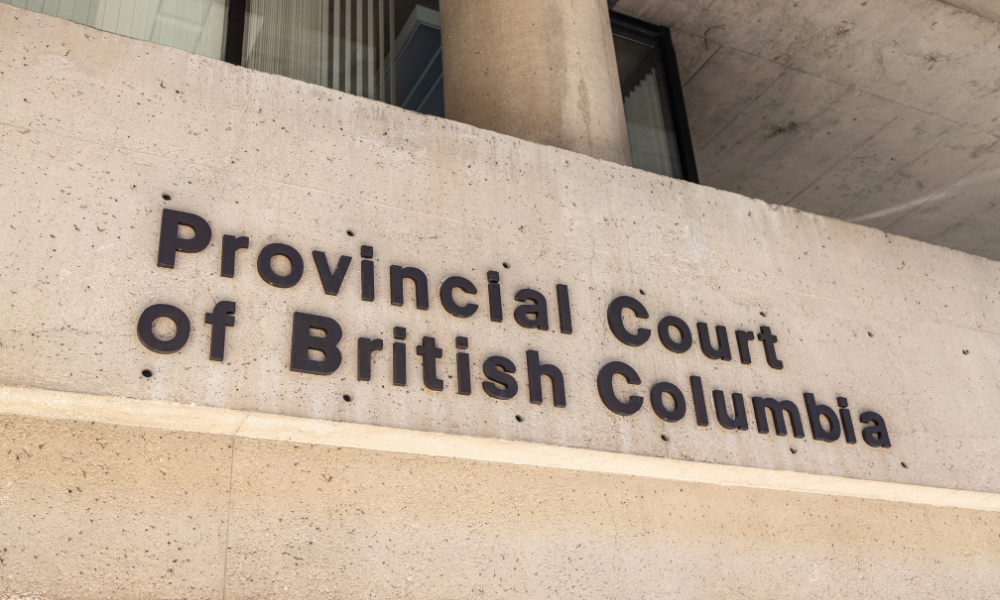
The chief judge also highlighted the increasing complexity of criminal and family trials

In its 2023/24 annual report, the BC Provincial Court has highlighted its adoption of new technology and its commitment to reconciling with Indigenous peoples.
Chief Judge Melissa Gillespie wrote in the report that in 66 percent of all criminal, family, and small claims court appearances in the fiscal year 2023-2024, at least one party appeared virtually via video conference.
“Virtual conferences and bail hearings, digitized court files, email and efiling, digital orders, and digitized telewarrant applications have increased convenience and decreased costs for many court users and enabled the Court to use its judicial resources efficiently,” Gillespie wrote.
She noted that all involved in court work have upskilled and adjusted to new technology, including judicial officers and employees, Court Services Branch employees, lawyers, and litigants.
Gillespie also emphasized the court’s active engagement with Indigenous groups in BC, pointing to the opening of a ninth Indigenous sentencing court in Lillooet. Moreover, the Duncan First Nations Court was relocated to a Cowichan First Nation’s building.
In addition, the court presented the Reconciliation in Action report, which focused on how the New Westminster First Nations Court affected clients’ overall wellbeing.
Gillespie addressed the evolving nature of the court’s work, particularly in relation to trials, and the effect on judicial workload.
“Our criminal and family trials have become more complex, and they take longer to complete. Multiple-day trials of serious offences lasting many days or weeks now take place regularly in all regions of the province,” she wrote in the report. “While the number of trials of minor offences has declined, judges’ workload has not.”
She explained that a decline in the number of cases the court handles does not correspond to a drop in the need for judicial resources.
“The increased complexity and length of trials offsets the reduction in volume,” Gillespie said, confirming that the court was in the process of analyzing data on the effect of such changes.
The chief judge noted that the Early Resolution approach to Family Law Act cases has aided in resolving parenting and support disputes among Victoria and Surrey families through a process that is shorter and less stressful for both parents and children.
The full BC Provincial Court Annual Report 2023/24 can be accessed here.